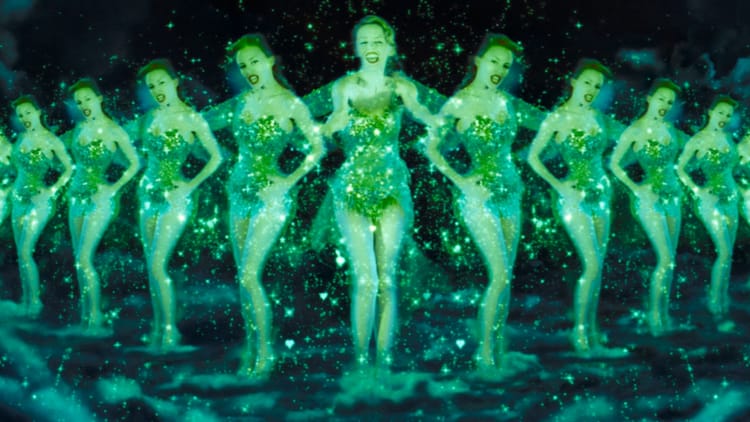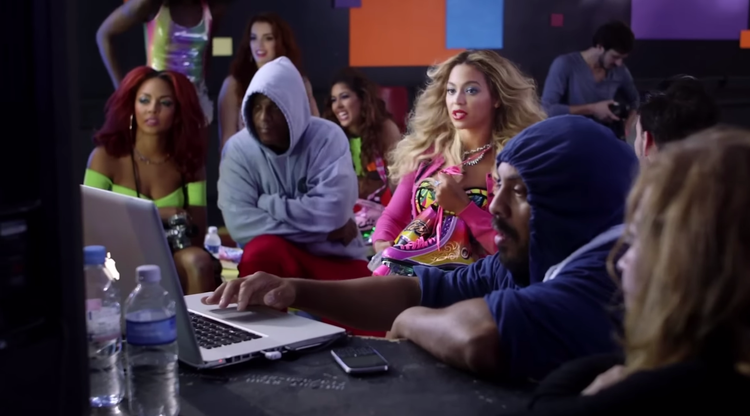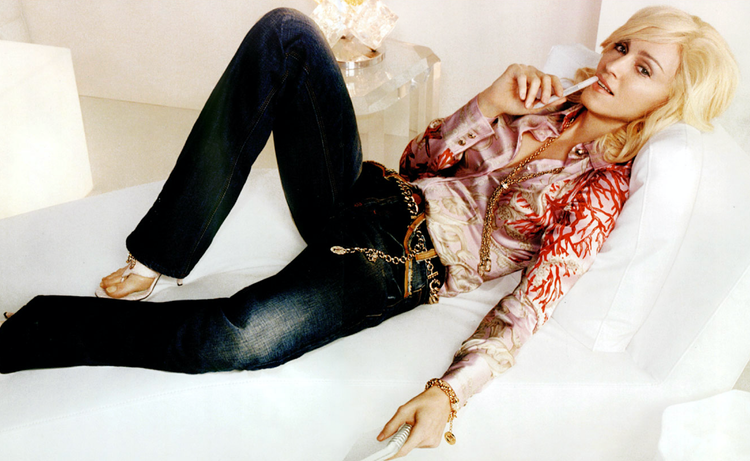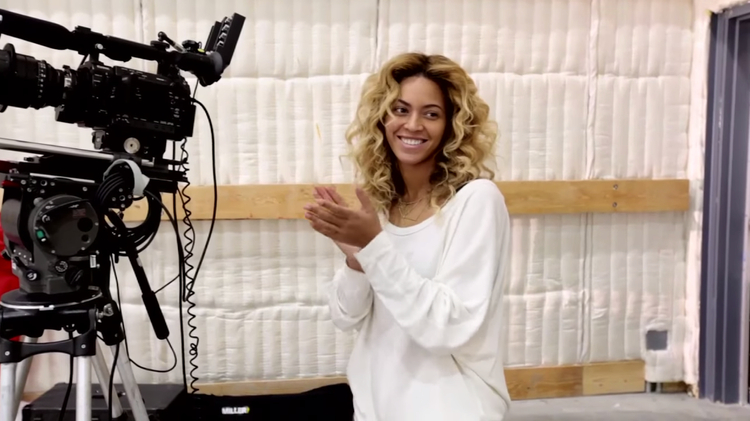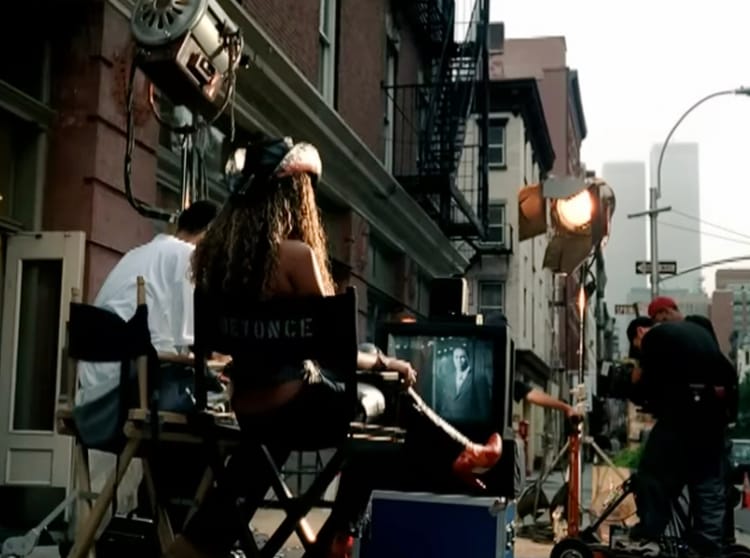Madonna v. Metro Toronto Police
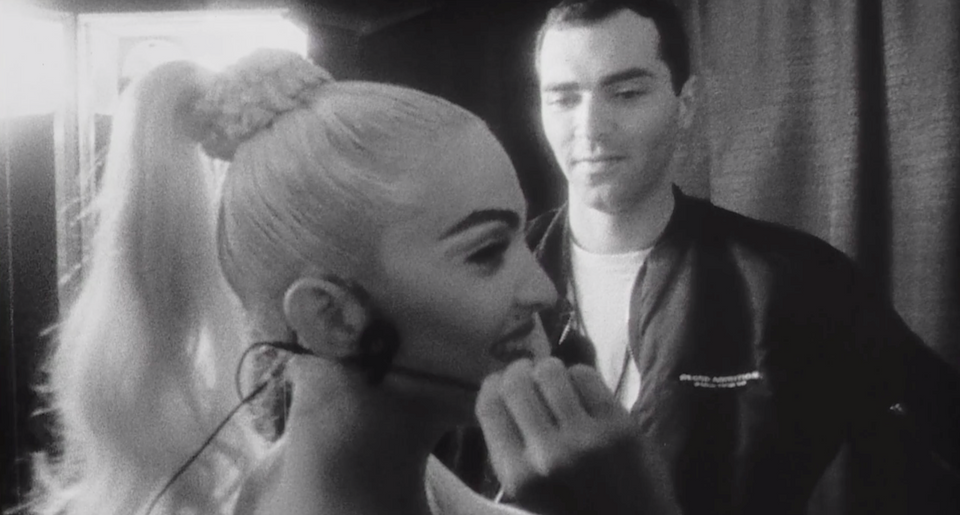
You’re reading the first instalment of Mononym Mythology from its new home over at Ghost. I’m still ironing out some kinks here and there since migrating everything from Substack, so let me know if anything looks off. Thanks so much to everyone for their patience while I’ve gotten all of this sorted—blah! I promise to make up for lost time in the coming weeks. Another bit of housekeeping is that this newsletter will be turning a whole year old on June 11, which means that it’s time for another AMA. (Here was the last one.) If there’s anything you’d like to ask me, newsletter-related or otherwise, you can email me your questions.
This month marks 30 years of Madonna: Truth or Dare (1991), Alek Keshishian’s iconic two-hour chronicle of Madonna’s Blond Ambition World Tour. If you read this newsletter regularly, you might remember that I’ve written about the film in passing a few times—its undercurrent of loneliness, the complex figure at its centre, how it was originally set to be directed by David Fincher. For me, the film is fun and challenging the same way that its subject is, an invaluable record of a superstar at her peak. And, as the anniversary was approaching, I spent a lot of time reading others’ retrospectives (this is my new favourite) and trying to decide whether I personally had anything new to say about it.
As a lifelong Torontonian, I’ve always particularly enjoyed the 10 or so minutes of the film that revolve around Madonna going up against the Toronto Police Service, then still called the Metropolitan Toronto Police (MTP). The Blond Ambition World Tour’s three Toronto stops—performed on May 27, 28, and 29 of 1990—were all at the SkyDome (now the Rogers Centre… we love rebranding things here). The first of those shows took place without incident. The second was attended by at least one plainclothes police officer who didn’t appreciate, among other things, the pillow-humping that concluded the “Like a Virgin” portion of the show. (MTP initially claimed that they’d checked out the second show in response to multiple audience complaints after the first one, but an officer who appears in Truth or Dare seemed to suggest a few years back that the whole thing was in fact spearheaded by MTP and a Crown Attorney.)
To quickly recap the Truth or Dare segment in question: just before the third and final Toronto show, Christopher Ciccone, Madonna’s brother and sometimes team member, appears in her dressing room and shuts her radio off. He explains that MTP have threatened to arrest her if she simulates masturbation during the “Like a Virgin” number—for “immoral live performance,” he quotes them as saying. Once she realizes that Christopher isn’t kidding, she has a dozen questions. “So what’s considered masturbation?” she asks. “When you stick your hand in your crotch,” he replies, dryly. Another team member guesses how the night will proceed if she performs the scene as choreographed, which she seems keen on doing: “They’d probably take you to the station, they’d probably write you a ticket, and you’d have to pay a fine. It’d be in the papers, you’d be in every paper in the world.” Madonna, naturally, quite likes this idea.
While her then-manager, Freddy DeMann, negotiates with MTP elsewhere in the building, Madonna informs her crew of the arrest threat. Shock quickly turns to nervous excitement at the prospect of being arrested as a group. “They arrested Bobby Brown for fuckin’ on stage!” exclaims singer Niki Haris. “I hope he’s in jail when I get there,” Madonna jokes. After their pre-show prayer, during which Madonna refers to the “fascist state of Toronto,” the crew launches into a joke rendition of “We Shall Overcome.” Madonna, Niki, and fellow singer Donna De Lory harmonize to “Holiday” as they march holding hands past a group of officers, and Madonna spits on the floor. “Last time I was on tour, Sean [Penn] was in jail. I guess it’s my turn,” she laughs. While we don’t actually see it in the film—we see “Like a Virgin” as it was performed on a different night of the tour—Madonna spends much of the evening teasing and spitting at officers in the audience. In the end, MTP chooses not to arrest her. The next morning, Christine Bentley of CTV News reads conflicting statements about the night from Madonna HQ and MTP, respectively. Truth or Dare, released almost exactly a year later, reveals the latter statement to be more or less bogus.
Canadian media have covered that night at length in various pieces of writing, speaking to crew members and even the officers directly involved in the incident. “From the stage you could see their police badges at all the exit signs around the arena,” dancer Jose Xtravaganza has said. “All you saw was shimmers.” In another great quote, officer Frank Bergen believes that he and his colleagues were “portrayed as being real knobs” in the film. But I noticed as I was revisiting this coverage that I didn’t yet have a sense of how that night felt for actual fans, even though I knew anecdotally that it means quite a bit to many. I spoke with five Torontonians past and present who attended the Blond Ambition World Tour somewhere in the world, three of whom were at the SkyDome on May 29, 1990.
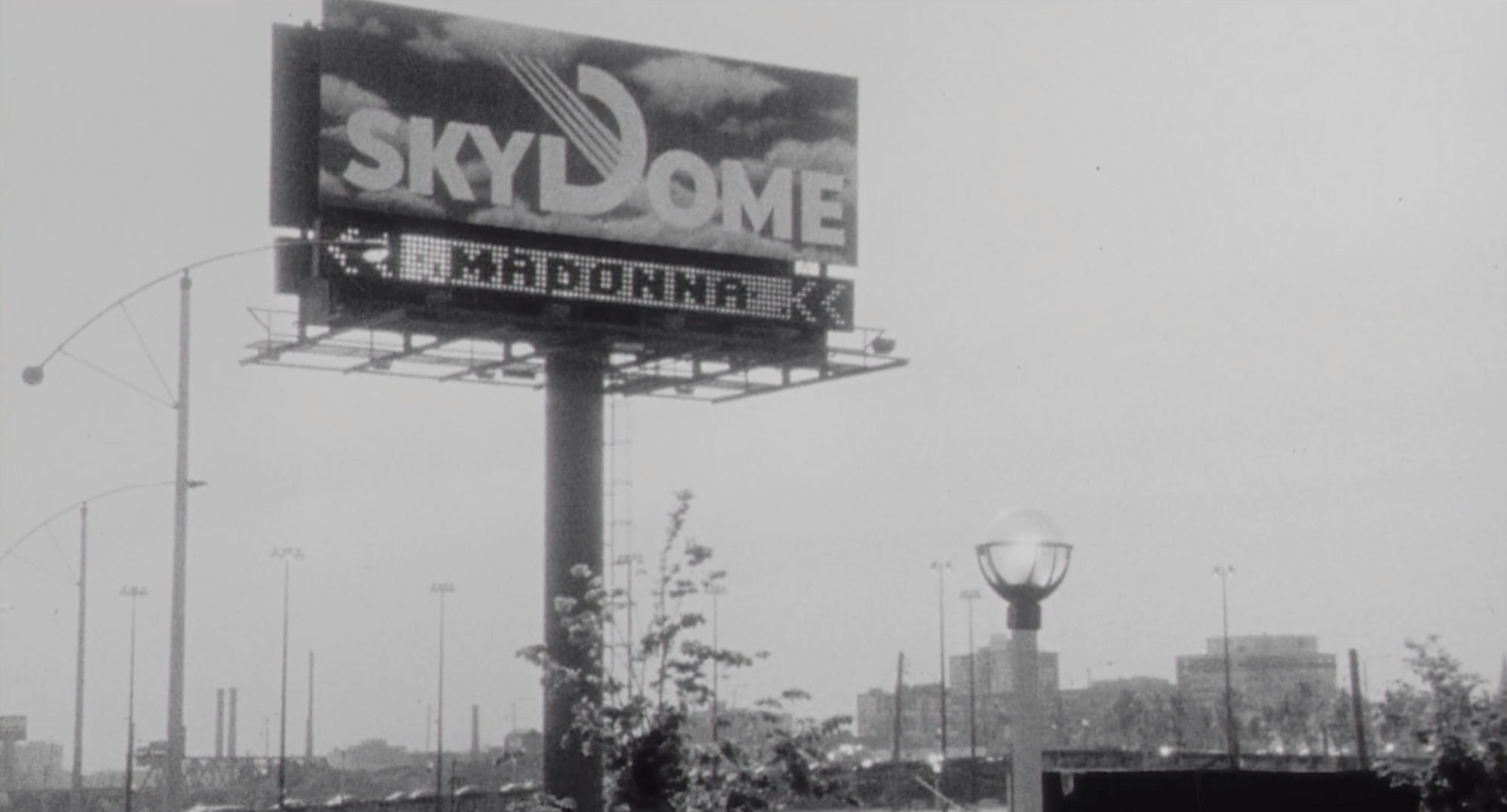
Debbie, 64: When that tour was put together, I really wanted to go. I ended up getting six tickets. Four of us drove together... I had a convertible at the time. My niece was nine years old. Natalie did everything with Aunt Debbie, and that was her first concert.
Kyle, 50: I went to all three Blond Ambition shows in Toronto. I was 19 years old at the time. The last show, the one the police were at, I had gotten front row tickets for. When they announced the third Toronto show, I camped out overnight in Niagara Falls to get tickets. The person running the store slept in and showed up 30 minutes after the tickets went on sale. I was so upset and angry. I came home that morning with tears in my eyes as I explained to my mother what happened. She wasn’t having any part of it and she got on the phone with Ticketmaster and basically screamed at them. By one o’clock that afternoon, Ticketmaster called my mom back and told her six front row tickets were reserved in her name at the outlet.
Luis, 45: I was 14, and it was the very first concert that I ever went to. My aunt got me tickets ‘cause she worked at an advertising agency. I was sitting on the 500-level because it was at the SkyDome, and I remember we had binoculars.
Kyle: [Blond Ambition World Tour dancer] Oliver showed up at [Komrads bar] the night of the second Toronto show. We talked to him for a bit, he was really nice to us. He said Madonna goes to bed right after a show and she rarely parties. We were hoping she was gonna come out.
Giuliana, 53: I went with my best girlfriend at the time… and her abusive boyfriend. We had nothing to do and no money and no concert tickets. Madonna was in Oakland. I said, “Let’s go to Madonna,” so we went to the will-call with little purses and emptied them out on the counter, and I think tickets were $20 at the time, and we did not each have $20 on us. I emptied my purse out onto the counter and I think it was $15 and a fully-wrapped tampon, and the woman behind the counter loved my sense of humour and said, “You’re in.” Our tickets… we could see the whites of her eyes, we were right up front.
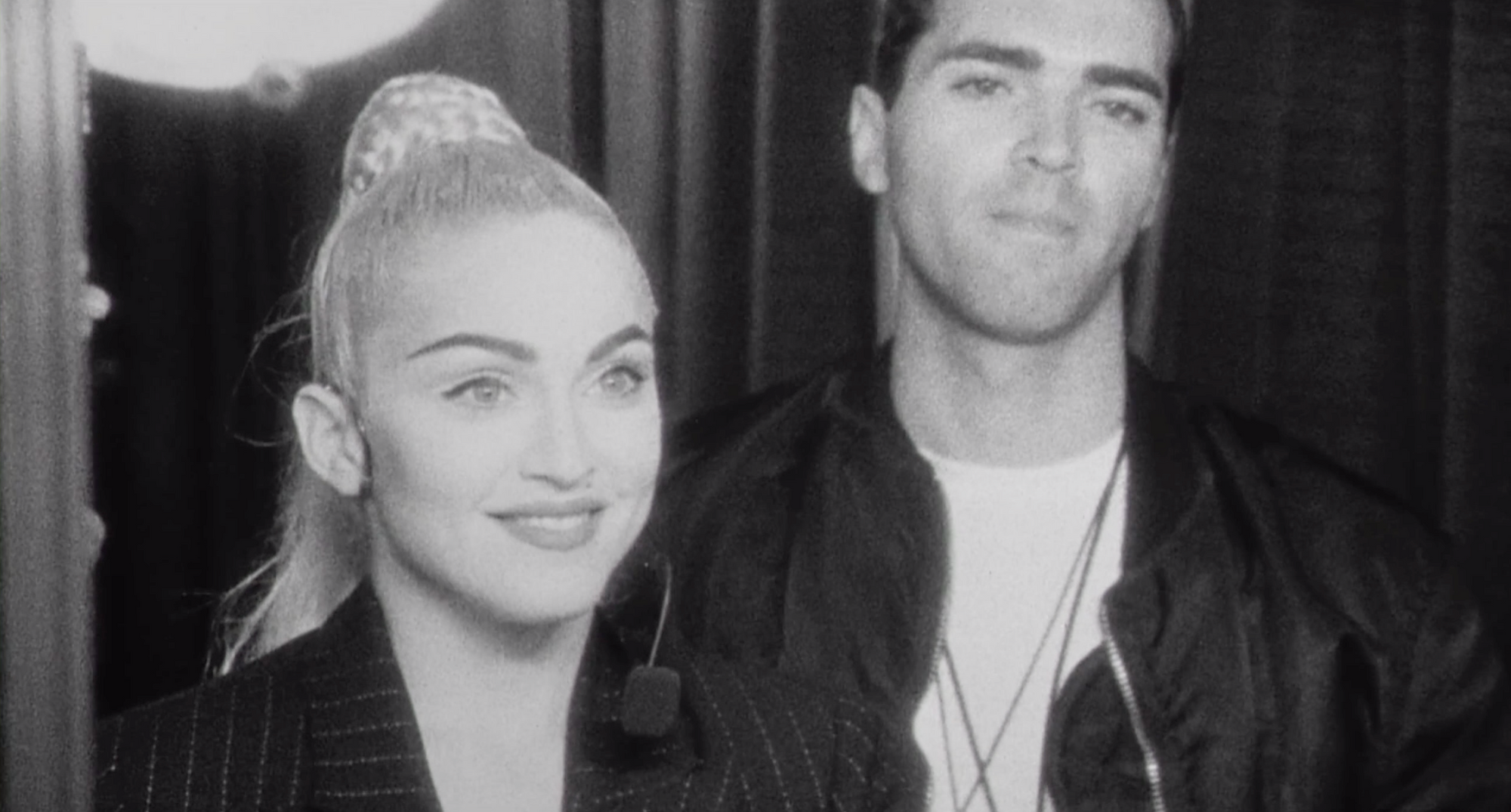
Christopher Ciccone, Madonna’s brother and sometimes team member: The police are here, and they say that you can’t do the masturbation scene tonight, otherwise you’ll be arrested.
Kyle: When she hit the stage, we immediately knew something was up because she changed the intro of “Express Yourself” [from “Do you believe in love?” to “Do you believe in artistic expression and freedom of speech?”]. We all looked at each other and were like, “Huh?”
Luis: I just remember waiting a super long time for the show to start and getting in trouble with my mom because we didn’t get home until like twelve or one o’clock in the morning.
Debbie: [My partner] John was a bit nervous because of us taking Natalie, because of Natalie’s age. There were cops everywhere, and this is outside, before we even went inside.
Kyle: There was something in the air on the third night. You could cut the tension and it started the moment the lights went off. My friend beside me grabbed me at one point and whispered in my ear, “She’s pissed about something.”
Luis: When she was on stage, she was really digging at the police.
Debbie: She used to shoot them a little smirk, like if she was gonna do something that was risqué, she always looked at them first. A couple of times, there were some things that… it was a taunt.
Kyle: We had no idea the police were there until the next day when my mom pulled me out of bed and told me to turn on the news.
Luis: It wasn’t until Truth or Dare that we were sort of like, Oh my God, all that was happening while we were waiting? That’s what was going on? We had no idea. It didn’t really click in until later, like, That was really cool, I was there, that’s why she was late, that’s why she said what she said at that moment.
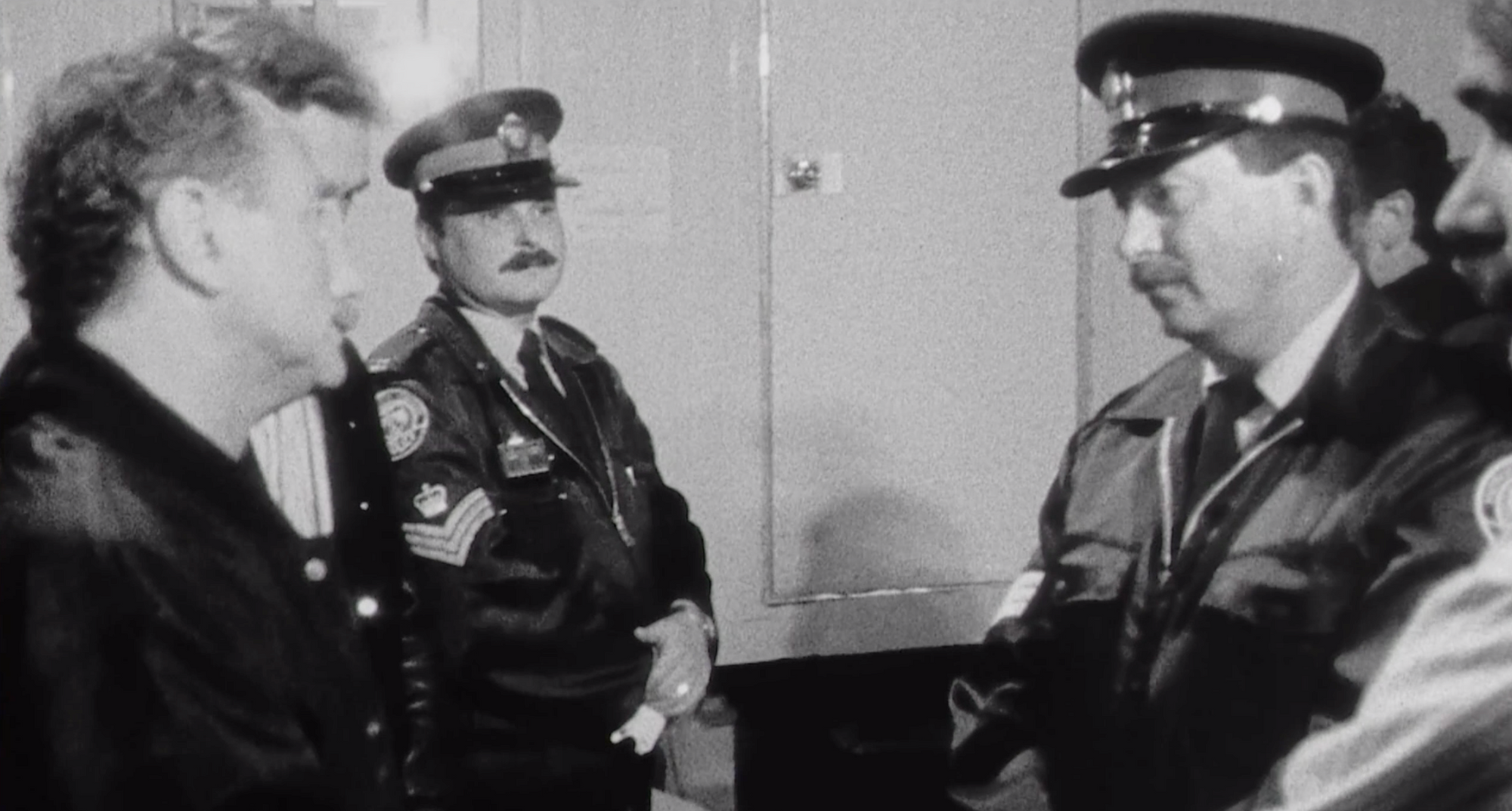
Freddy DeMann, Madonna's then-manager: She has told me that this is artistic freedom, this is her show. It’s gone on in several countries, in major cities across the world, and if Canada… if you choose to [arrest her], I’m sure it’ll be an international scandal.
Debbie: I really don’t think the police themselves were gonna do anything. I think it was from even higher up, I really do. It was from the religious groups… because she already had a reputation then. She had already done that tour other places. The cops only do what they’re told.
Giuliana: I think anybody who was paying to see Madonna knew what they were in for, and would probably love all of it... unless they just weren’t aware of what she was about. I doubt it would be audience members [who complained].
Debbie: “Like a Virgin” comes on… the bed… she’s got the cone boobs on.
Luis: During that whole “Like a Virgin” scene, we were sort of like glued to the binoculars. You were 14, you couldn’t believe what was happening on stage, I had never seen anything of that magnitude, I don’t think anyone had ever seen anything of that magnitude, because she sort of like… revolutionized the whole concertgoing experience with that tour.
Debbie: I had binoculars because we were up high. Nat kept hitting me with her elbow: “Give me the binoculars, give me the binoculars.” I would give them to her. Over her head, John would be looking at me and saying, “Take them away from her, she shouldn’t be watching this.”
Luis: [My aunt] was shielding our eyes. She was like, What the hell did I bring these kids to?
Giuliana: We were completely sober and the tilted bed and everything that it represented to young people, it was everything. And the dancers, the choreography, all of it was just everything that we needed.
Luis: That concert was such an exposure of art… Tamara de Lempicka… fashion… Jean Paul Gaultier. There was just so much to absorb.
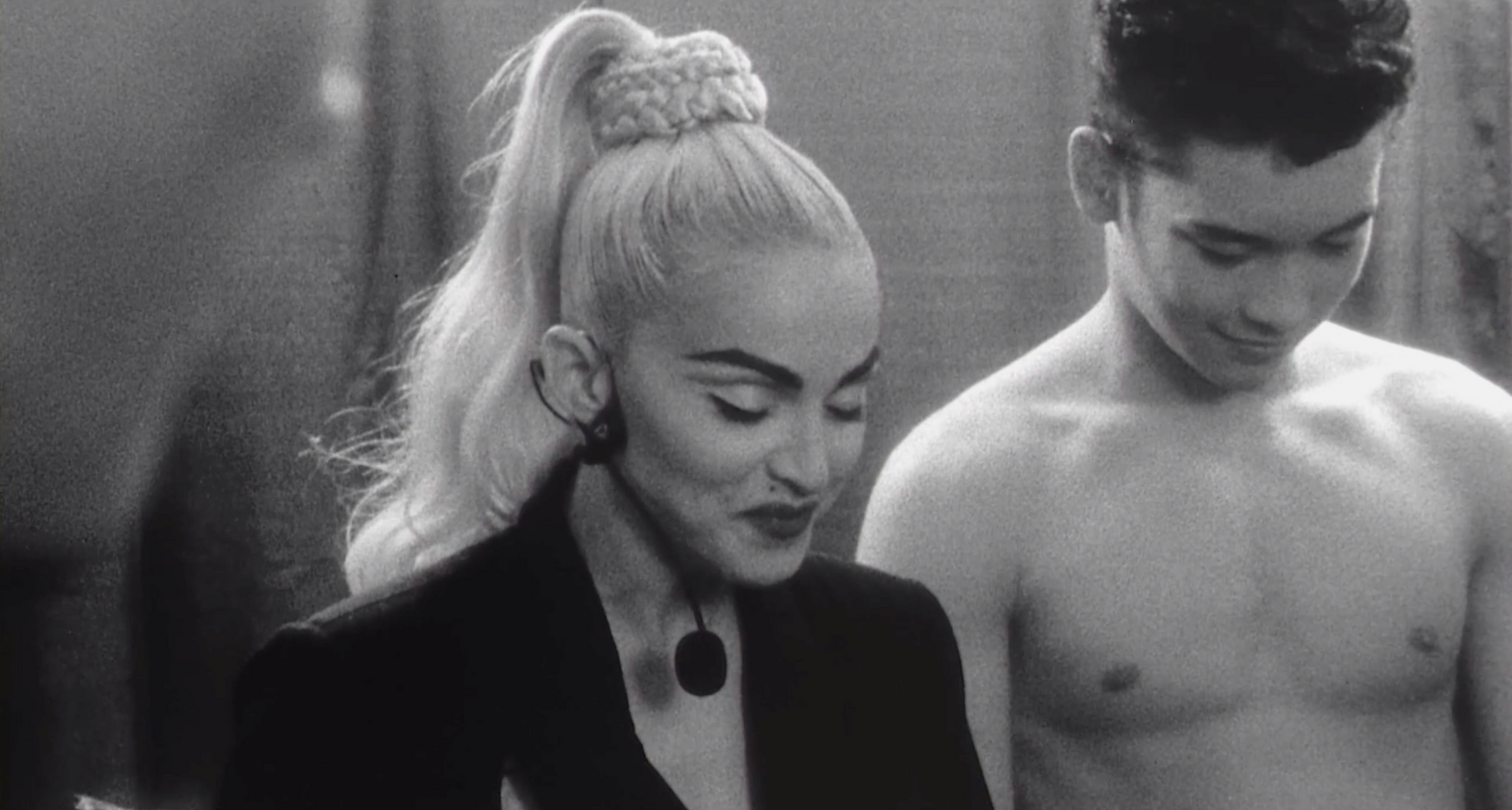
Madonna: Dear Lord, this is our last night in Toronto… the fascist state of Toronto. I know all my little babies are feeling fragile, and I just want you all to know that I love you all and I appreciate everything that you’re doing for me, and I’m here if you need me. I want you to go out there tonight and give everything that you have. Have a great show, and remember that in the United States of America, there is freedom of speech.
Abdi, 44: As somebody who lived in Toronto and had tons of family members still living there when Truth or Dare was released, it was kind of fantastic to have this huge segment devoted to the “fascist state of Toronto.”
Luis: You could tell she was nervous [in Truth or Dare]. But then she goes on stage and she wasn’t afraid at all. If anything, she did it more.
Abdi: I certainly don’t think fear is an emotion that I associate with her all that often. I think there is a fearlessness to her, and even if she was [scared], she clearly worked through it pretty quickly and went on with the show as planned.
Debbie: I think she has guts. She says what she thinks. It needed to be done, there was too much censorship with everything else. She opened a lot of doors.
Luis: I think it came down to not compromising her artistic integrity. I think her art was more important than her reputation.
Giuliana: I don’t think it’s been easy for her, I think she paid the price as well.
Abdi: Look at what happened with Pepsi, I don’t think Madonna really cares what authorities and brands think of her art. I think she makes her art, and if it fits in with the culture of the time, then fine, and if it doesn’t, then she does it anyway. The only time, as far as I know, that she’s backed away from anything she did was the “American Life” video, but other than that, her whole career has been one controversy after another because she’s never backed away or apologized or changed [her art].
Giuliana: I was quite sassy, but as a woman I hadn’t found my voice yet, so I really loved Madonna’s irreverence, and I wasn’t religious, either, so it didn’t press any of my buttons. I just embraced it.
Kyle: I had just come out as gay to my family and friends who I went to that infamous Blond Ambition show with, so I had a feeling of empowerment and that I could finally be myself.
Abdi: I was 13 years old and just realizing I was gay and unable to put it into words, and completely afraid, and… so, to go and see a tour like that, which was such a celebration of queer culture, and get a peek into a world I might belong to, was pretty powerful.
Luis: I remember coming home from the concert, and I was like, Wow, I’m not the only one. There’s at least 12 more out there. [Laughs] Talking about the dancers, you know what I mean?
Abdi: I wrote a novel that the Blond Ambition Tour is in. And there’s a scene where the character who’s kind of me in the novel, Reza, who’s a young Iranian teen who goes to the Blond Ambition Tour... he describes the experience of seeing those dancers on stage, and that magical power of it. And I had the real honour of being on [Blond Ambition World Tour dancer] Luis’s podcast, and I read that out loud to him, and it was so moving. And I got to tell him how impactful he was, and his fellow dancers were, on giving me a sense of hope and a language in which to speak my own truth. And I think he really accepted that and understands that he had that impact, and that was all the result of Madonna sharing the screen with them, and sharing the stage with them. There was a real risk-taking involved in the movie and the tour, and there was a spirit of generosity towards a community that was not really being treated generously by very many people. That was a part of it, and I wish that that was the part of the legacy that we talked about the most.
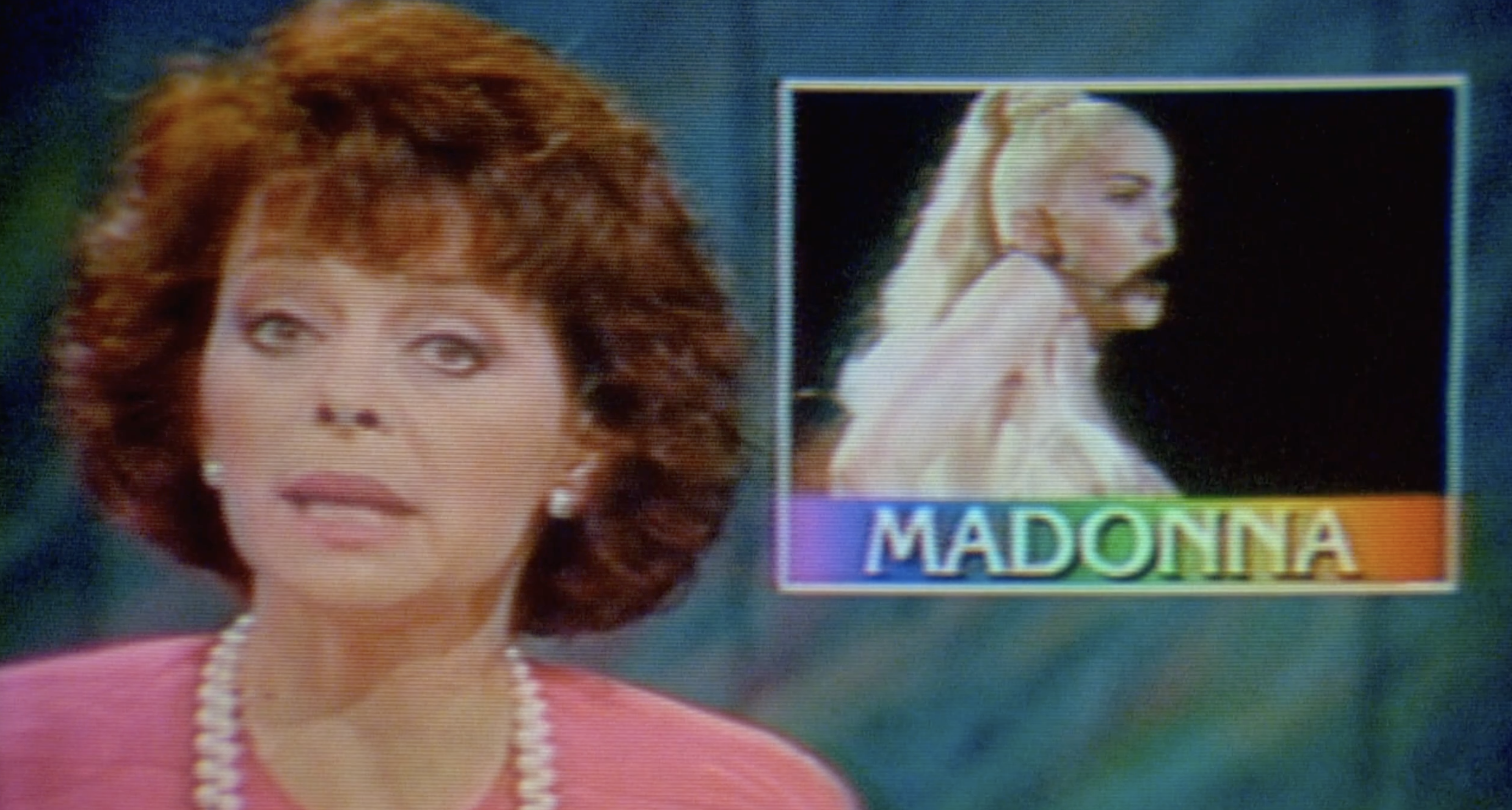
CTV News’s Christine Bentley: Spokesmen for rock singer Madonna say Metro Police and the Crown Attorney’s office threatened to arrest the star last night for lewd and obscene behaviour. However, the police department tonight has a different story. Headquarters says officers checked out the show on complaints from the public, found nothing wrong, and left without incident.
Kyle: I saw the documentary 10 times in movie theatres.
Abdi: Opening night of Truth or Dare, when it was actually released, I was with my family and my grandmother was visiting, and my parents were going out that night and were like, “You have to spend the night with your grandmother,” and I was like, “Well I have to go see Truth or Dare on opening night.” [Laughs] So I took my Iranian grandmother, who was completely shocked, and that was my first time seeing it. And then I think I saw it five more times in the theatre before seeing it countless times on video and stuff.
Giuliana: The film itself, I think it really speaks to Madonna’s ability to recognize talent.
Abdi: To suddenly, as a fan, be able to see these dancers, who were living so openly and unapologetically, and it was a celebration… so many people of my generation, the first gay kiss they saw was in Truth or Dare, myself included. It was major, and it was celebratory, like that was the first Pride parade I saw was Truth or Dare. I didn’t know what a Pride parade was! I think people today assume that we grew up in an era of openness and internet, where information was easily accessible, but it wasn’t. If you were from a traditional family living in the suburbs, there was no internet, there was no access to queer culture. I didn’t even know what gay culture was or what gay people were. We had no word for it in Farsi.
Luis: I just wanted to look like a Madonna dancer. You know like Madonna wannabes or Britney wannabes? For me, all through high school, if anyone ever said, "Oh my God, Luis, you look like a Madonna dancer," that was the biggest compliment. I cut my hair like them, I wore tiny shorts like them, and combat boots. And one of the guys’ names was also Luis, and I was like, Oh my God.
Abdi: She didn’t treat them like they were just background for her, she allowed us to really get to know them [in the film]. They were huge figures for me and for a large part of the world. They were the first depiction of queer people that weren’t dying, or evil, or scapegoated. Madonna was not a guest in queer culture for one year in 1990. When I hear stuff like that, it feels like a negation of my experience. It just feels like there’s no curiosity in learning what it was actually like to be a queer kid back then.
Luis: Years later, when I was living in New York, I was at a club—at Twilo—and Jose Xtravaganza, I remember I was wearing this bandana—you know, when bandanas were cool, like the early 2000s—and I was wearing it wrong apparently, and he took it off my head, and rewrapped it for me, and put it back on. I was just like, Oh my God, this is such a moment.
Abdi: I think what people who criticize ‘80s and ‘90s Madonna now miss is the culture of the '80s and '90s. Like, if you were a queer kid like me, I’m like an Iranian kid who grew up in a relatively traditional family, and it was the worst of the AIDS era… there really was nobody with Madonna’s level of mainstream current fame. You had someone like Liz Taylor, whose career was largely behind her, who was talking about AIDS, but nobody whose career was at their peak was talking about queer culture, about AIDS, raising awareness the way Madonna was.
Kyle: She was in our corner when nobody else was, and she single-handedly raised a generation of gay men. She was our surrogate mother. ●
Mononym Mythology is a newsletter about mostly pop divas and their (visual) antics. It’s totally free, but if you got something out of this instalment, consider buying me a coffee. The best way to support my work otherwise is by sharing it. You can subscribe here, and you can also find me on Twitter and Instagram.
